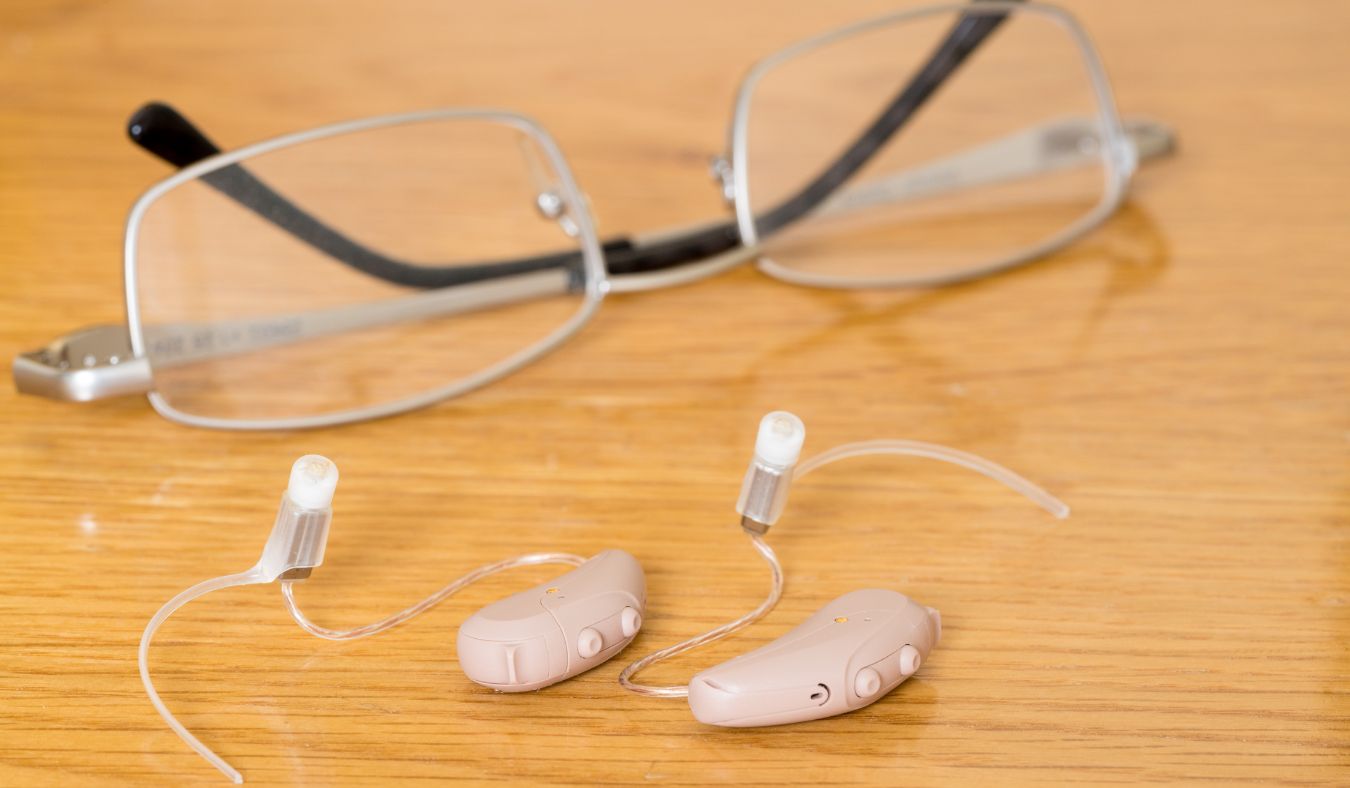The Impact of Hearing Aid Design on Wearer Comfort
When you’re choosing hearing aids, it’s easy to focus entirely

By: admin | July 29, 2025
Summer heat affects hearing aids differently than you might expect. When temperatures climb and humidity rises, your devices have to work harder to function properly and they’re more vulnerable to moisture damage from sweat and condensation. If you’ve ever noticed your hearing aids acting up during hot weather or after spending time outside, you’re not imagining things. Heat can cause batteries to drain faster, make devices feel uncomfortable to wear and even affect how well they process sound.
The good news is that you don’t have to avoid your favorite summer activities just because you wear hearing aids. From poolside gatherings to outdoor concerts to afternoon baseball games, there are practical ways to keep your devices working well even when the temperature soars. Taking care of your hearing aids in hot weather isn’t complicated, but it does require some different habits than you might use during cooler months. With a few adjustments to your routine, you can enjoy everything summer has to offer without worrying about your hearing aids letting you down.
High temperatures and summer conditions can pose real challenges for hearing aids. Just like any sensitive electronic device, hearing aids may not function as well when exposed to extreme heat. Warm weather can cause batteries to lose power more quickly, which means you might need to replace or recharge them more often. The heat itself can also stress or damage internal components, potentially leading to sound distortion or unexpected shutdowns. Storing your hearing aids in a hot car or leaving them in direct sunlight can make these problems even worse, sometimes permanently affecting the device’s casing or circuitry.
Humidity adds another layer of difficulty during summer months. Moisture in the air can work its way into your hearing aids, interfering with the delicate electronics inside. This can result in muffled sound, crackling noises or even complete device failure if the moisture is not removed. On particularly humid days, you might notice that your hearing aids need more frequent drying or cleaning to keep them functioning well. Using a dehumidifier or drying kit overnight can help draw out any trapped moisture, extending the life of your devices.
In addition to heat and humidity, summer brings increased exposure to sweat, dust and pollen. Sweat during outdoor activities or exercise can seep into microphones and battery compartments, causing corrosion or clogging. Dust and pollen in the air can become trapped in tubing or microphone ports, reducing sound quality and making it harder to hear clearly. Regular cleaning with the recommended tools can help keep these particles from building up and blocking key parts of your hearing aids.
Taking a few simple precautions can go a long way toward protecting your hearing aids in hot, humid weather. Store them in a cool, shaded place when not in use, dry them thoroughly if they get damp and use protective covers if you expect to sweat heavily. Cleaning them regularly helps remove dust, pollen and other particles that might interfere with sound. These habits help maintain reliable performance all summer long, so you can focus on enjoying your activities without worrying about unexpected hearing aid problems.
Sweat is another factor that can affect hearing aids during warmer months or when you are active outdoors. Moisture from sweat can seep into small openings and damage the sensitive electronic parts inside. It can cause batteries to drain more quickly, create muffled or distorted sound, or even lead to temporary device failure if too much moisture builds up. The salt in sweat is especially challenging, as it can collect on microphones or speakers, leaving residue that blocks or reduces sound quality. Regular cleaning helps remove this buildup before it interferes with performance.
Being near water also requires extra care with hearing aids. Spending time around pools, lakes or beaches often means more exposure to splashes or humid air that can work its way into the device. Even if you do not swim while wearing your hearing aids, water from poolside showers, accidental splashes or damp towels can reach them unexpectedly. Chlorine and saltwater can be particularly harsh on electronic components and the outer casing, making thorough drying and proper storage even more important after time near the water.
Taking a little extra time to manage sweat and moisture can make a big difference in keeping your hearing aids reliable and clear. Cleaning them after outdoor activities, drying them thoroughly if they get damp and avoiding direct exposure to water whenever possible all support long-term performance and comfort. These small steps help ensure you can stay active and enjoy the warmer months without unnecessary interruptions in hearing.
If your hearing aid becomes too hot or gets wet by accident, remove it from your ear right away and turn it off if you can. Gently dry the outside with a soft, clean cloth to remove any moisture. Take out the battery and leave the compartment open so air can circulate and help with drying.
Using a drying kit or dehumidifier designed for hearing aids is a good way to remove any remaining moisture inside the device. Placing your hearing aid in one of these tools as soon as possible can help prevent further issues and keep it working properly.
You may find that your hearing aid batteries run out faster during summer. High temperatures speed up chemical reactions inside batteries, causing them to lose power more quickly. Spending time outside or in hot rooms can make this worse.
Moisture from sweat or humid air can also enter the battery compartment, leading to corrosion or poor contact between the battery and the device. This can shorten battery life. Keeping your hearing aids dry and storing them in a cool place helps protect both the devices and their batteries.
Hot weather can be tough on hearing aids, so staying aware of early warning signs can help you avoid bigger problems later. High temperatures, sweat and humidity can all affect how your devices work, making regular checks even more important during the summer months. Keeping an eye out for common signs of heat-related issues ensures you can take quick action when needed, including:
Being able to recognize sound quality issues caused by summer conditions helps you keep your hearing aids working well. During summer, you might notice sounds seem muffled, distorted or unusually quiet. These changes often happen when moisture from sweat or humidity gets inside the device or when dust blocks microphones and speakers. If voices sound unclear or background noises seem louder than usual, your hearing aids may need cleaning or drying. Addressing these issues quickly helps you stay connected and confident that your devices are working as they should.
Cleaning your hearing aids regularly is especially important during the summer months, when sweat, dust and moisture can build up much more quickly. These elements can block microphones or speakers, reduce sound quality and even cause your devices to stop working properly. Keeping them clean helps protect the delicate parts inside and ensures reliable performance, even on the hottest days.
Regular cleaning helps prevent:
Setting a daily reminder or keeping cleaning supplies somewhere easy to see can help you remember these small steps, even when your schedule gets busy. Taking this extra care means fewer unexpected problems and longer-lasting performance all season long.
Storing hearing aids safely during hot weather helps keep them working well. High temperatures and direct sunlight can harm the electronic parts inside your devices. Always store your hearing aids in a cool, dry place when not in use.
Avoid leaving your hearing aids in cars, near windows or anywhere they might get too warm. Heat can build up quickly in these places and cause permanent damage. Using a protective case shields the devices from dust, moisture and heat when you are outside or on the go.
If possible, use a drying box or dehumidifier designed for hearing aids at night. This removes any moisture that may have built up during the day and helps keep your devices ready for use each morning.
It is normal for hearing aids to need occasional cleaning or minor adjustments, but certain problems are best handled by an audiologist. If you notice persistent issues like distorted or muffled sound, whistling or feedback that does not go away with repositioning, or trouble hearing even in quiet settings, it is a good idea to schedule an appointment. These symptoms can mean the device needs professional cleaning, reprogramming or even repair that goes beyond what you can do at home.
Frequent battery drain or devices that turn off unexpectedly are also signs to pay attention to. While some battery changes are normal, batteries that die unusually quickly may point to a problem with the device’s internal electronics or moisture damage. An audiologist can test the hearing aid to find out what is causing the issue and offer solutions, like replacing worn parts or improving how the device is sealed against moisture.
Physical damage is another clear reason to see an audiologist. Cracks in the shell, broken tubing or components that do not fit comfortably anymore can all make hearing aids less effective or even painful to wear. Even small damage can let in moisture or dust that harms internal parts. An audiologist can inspect the device, recommend repairs or help you decide if a replacement is needed.
Finally, any changes in your hearing itself should prompt a visit. If voices seem less clear, background noise feels overwhelming, or your overall hearing seems worse, an updated hearing test can help determine whether the device needs to be adjusted or if your hearing needs have changed. Regular checkups ensure your hearing aids keep meeting your needs so you can stay engaged and confident in daily life.
Summer should be a time to enjoy the things you love without second-guessing whether your hearing aids can keep up. A little extra care during hot, humid months goes a long way in helping your devices handle sweat, moisture and heat. Paying attention to how you store them, cleaning them regularly and protecting them from high temperatures can make daily use more comfortable and reliable. These small steps mean fewer interruptions and better sound quality when you want to focus on time with friends, family or your favorite summer events.
If you have questions about keeping your hearing aids in top shape this season or want expert help with any hearing concerns, we are here to support you. Contact Davis Audiology. You can reach our Greenville, Simpsonville or Spartanburg, SC offices at (864) 810-6238. We are happy to help you find the right care and solutions so you can make the most of every warm, sunny day.

When you’re choosing hearing aids, it’s easy to focus entirely
By: admin | October 20, 2025

Summer heat affects hearing aids differently than you might expect. When
By: admin | July 29, 2025

Music plays different roles in people’s lives; it motivates you
By: admin | June 20, 2025
